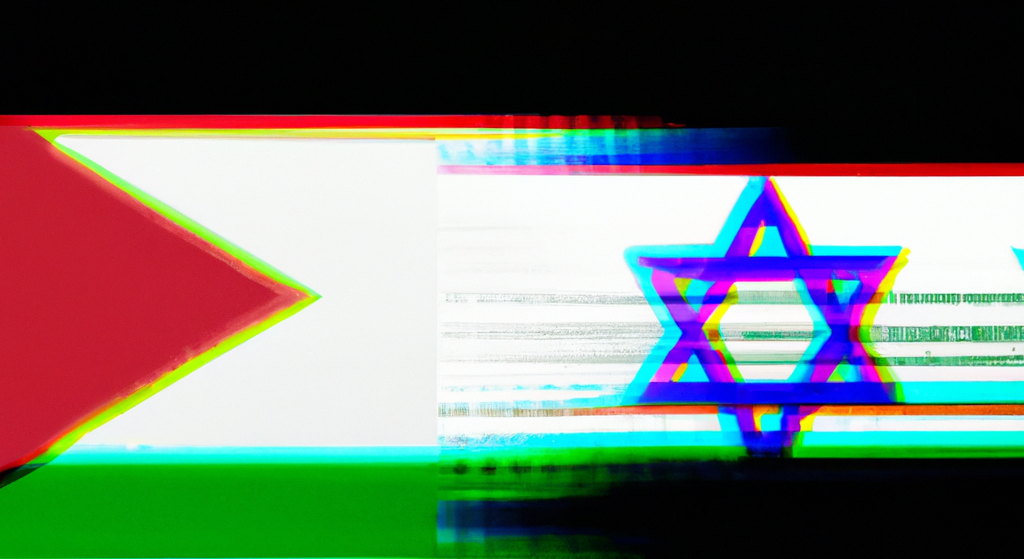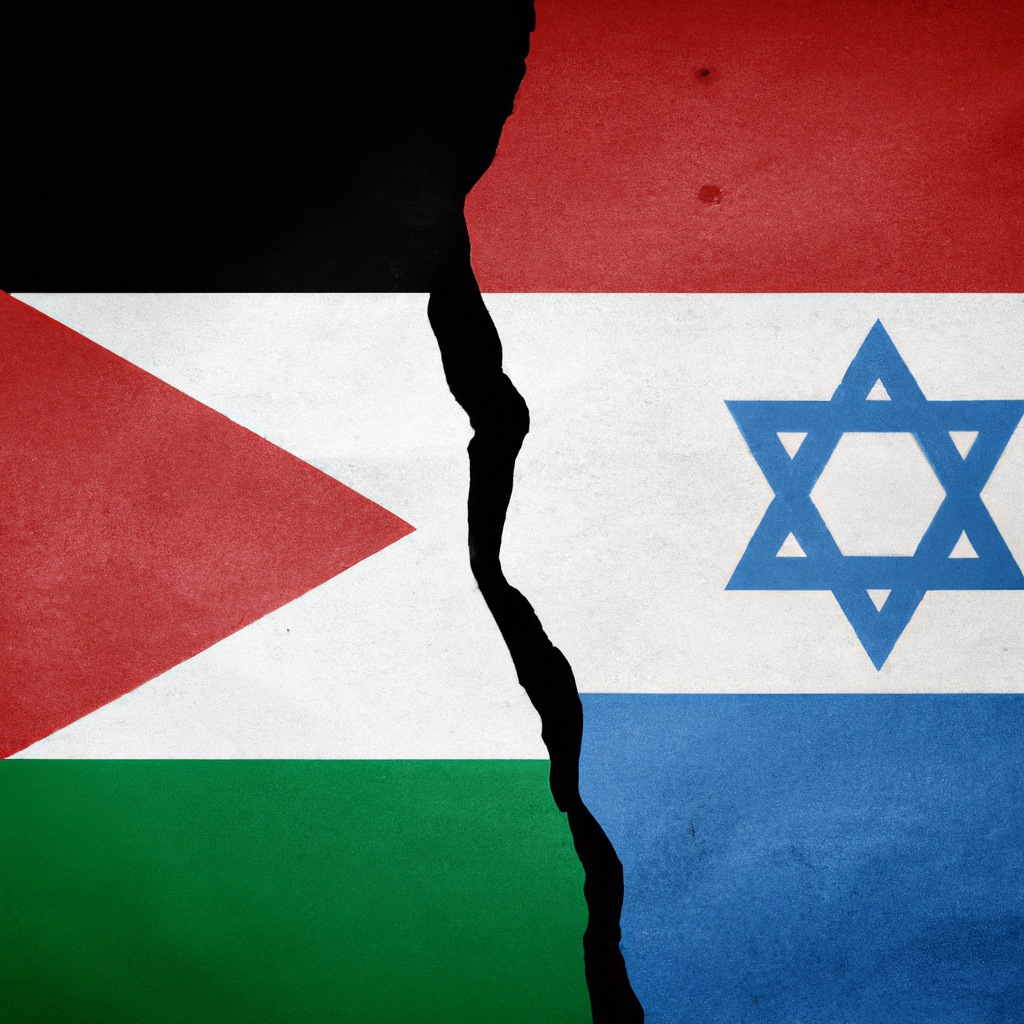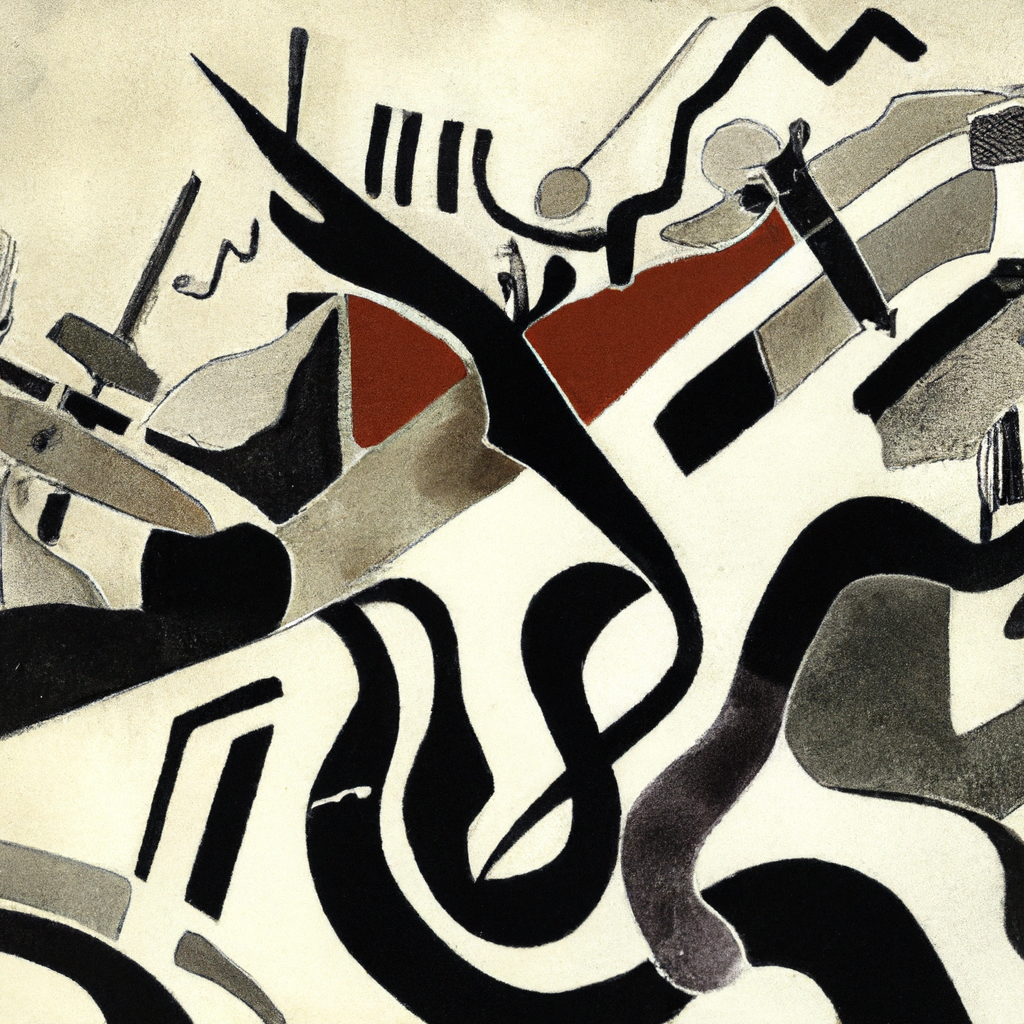Our tears flow when we think about the situation in Israel and Gaza. It matters little whether we think about the October 7th terrorist attack on Israel or Israel's more traditional military attack on Gaza in response. We are filled with tears, anger, outrage, and horror over Israel and Palestine. And most of all, we are filled with hopelessness. Perhaps we can borrow from the Christian Scriptures and remember that "hope that is seen is not hope, for who hopes for what one already sees?" (Romans 8:24).
Ending the tears is both next to impossible and relatively simple. We need to frame things in terms of a fact, two ethical imperatives, five historical realities, and some thoughts on language. The end to the tears is in these things.
Fact
There is a relatively simple fact that must be accepted if we are to end the tears for Israel and Palestine. Not all will want to accept it, but that does not alter the fact that it is indeed a fact.
Neither the state of Israel nor the Palestinian people are going to cease to exist in the geographic area.
All sides can continue to kill in hopes that this fact is not valid, but it is. Violence does nothing to change this fact. It only causes tears. Ending the violence is possible by accepting this fact. Northern Ireland is an example of a place where a similar fact was finally accepted, and the violence stopped.
Fact: Neither the state of Israel nor the Palestinian people are going to cease to exist in the geographic area.
Ethics
Arising from the fact above and the complex history of the geographical area explored below are two ethical imperatives:
Ethical Imperatives:
1. The nation of Israel must exist and be secure.
2. Justice for the Palestinian people must be promoted and requires the establishment of a Palestinian nation.
The nation of Israel must exist and be secure.
Justice for the Palestinian people must be promoted and requires the establishment of a Palestinian nation.
Implementing both of these ethical imperatives may be very difficult. Some might argue that it is impossible to implement both. However, we must reject such thinking as implementing both is the only way to stop the tears. Doing one without the other means that they both fail. The status quo is evidence of this. Israel will never be secure unless the Palestinian people have justice. The Palestinian people will never have justice if as some extremists insist that the state of Israel be eliminated.
History
The history that led to this conflict is complex. Yet, we must have a basic and accurate understanding of five historical realities for progress to be made. Both Israelis and Palestinians see the land as their rightful home and have engaged in a decades-long struggle for control. Both sides have deep historical and religious ties to the land.
1. Antisemitism
Unfortunately, antisemitism is a terrible historical reality that must be dealt with as we consider the historical context of the conflict. Antisemitism is the central reason that it is an ethical imperative that a secure nation of Israel exist. Throughout history, the Jewish people have been subjected to discrimination, persecution, violence, and genocide. It is difficult to understand how a relatively small group of people who have contributed so much to the world have been subjected to so much prejudice and hatred.
The history of the oppression of the Jewish people can be traced back to biblical times. However, for our purposes, the last two millennia are central. The Jews revolted against the Romans in 66 CE, but their efforts were crushed. In 70 CE, the Romans sacked Jerusalem, destroying the temple and the Jewish nation. Many Jews were killed, and those that survived fled to other areas across the world, the largest number to Europe. This dispersal of the Jews is known as the Diaspora.
Historical Realities:
1. Antisemitism.
2. Why this land?
3. Unfair to Palestinians.
4. Israeli Violence Has Not Led to Safety.
5. Palestinian Violence Has Led to Less Justice.
In medieval Europe, they were often forced to live in segregated ghettos and subjected to discriminatory laws and restrictions. They were also accused of various crimes and scapegoated for societal and economic problems, leading to violent pogroms and expulsions.
In the 20th century, the oppression of the Jews reached its peak with the rise of Nazi Germany and the Holocaust. Six million Jews were systematically murdered in one of the most horrific genocides in history.
After the Holocaust, it was clear that Jews could not count on the world to protect them. They needed a place they could control to be safe. Many Jews would move to this place after having suffered enough of the horror. Still, other Jews would hold this place as special not only because of their ancient biblical connection to it but also because of the assurance that the place is there in case the world again goes crazy and tries to eliminate them.
2. Why this land?
Once we determine that Jews must have a nation of their own, then the question remains as to why this land, Palestine, as opposed to some other place? The obvious answer is a religious one. According to the biblical understanding, this is the promised land for Israel. We can't escape the fact that this was the reason for selecting this land for a Jewish homeland. However, basing international decisions on a religious basis is dangerous. After all, Muslims and Christians have religious reasons to claim this same land. Moreover, Jews had not had a nation in Palestine for almost two millennia. Further, when the rationale is based on the religious idea that "God gave this land to Israel," it becomes too easy to ignore the legitimate claims of the Palestinians or even as some extremists in Israel propose that the Palestinians simply be expelled from the land.
One legitimate reason in international relations for this particular place is that there was a growing Jewish population in the area. While Jews had not been the majority population in Palestine since the Diaspora, the population had slowly increased. After Muslims gained control of the area in the seventh century, Jews who had been expelled centuries earlier were invited to return, and some did. In the 14th century, the Ottoman Empire won control of Palestine from other Muslim forces. Under this rule, both Jews and Christians were protected. As Jewish oppression in Europe increased, the Ottoman Empire was a safer place for Jews, and so their numbers grew in Palestine.
The most defensible reason for Palestine being the location for a Jewish nation is simply this is what the international community decided. After World War I, Ottoman rule of Palestine ended. The area came under British control with the mandate from the League of Nations for establishing a Jewish homeland in Palestine while protecting the rights of the Arab population. After World War II, the United Nations voted to partition Palestine into separate Jewish and Arab states, leading to the establishment of the state of Israel in 1948. As the first ethical imperative stated above, this was necessary. There must be a state of Israel.
3. Unfair to Palestinians
The establishment of the state of Israel, no matter how necessary, was not fair to the Palestinians. So they and their Arab neighbors resisted. Of course, they did! Neighboring Arab countries rejected its existence and saw it as an unjust division of their land. It sparked the first of many wars. Against all odds, Israel emerged victorious, but the conflict with its Arab neighbors would continue for decades, leading to several more wars and ongoing tensions.
The Arab-Israeli conflict has also been fueled by the issue of Palestinian statehood. The Palestinian people have long sought an independent state in the land they consider their rightful home. However, Israel has been resistant to granting full autonomy to the Palestinian territories, leading to ongoing conflicts and violence. The Six-Day War in 1967, in which Israel gained control of the West Bank, Gaza Strip, and East Jerusalem, further complicated the issue and has been a source of ongoing conflict.
The ongoing Israeli-Palestinian conflict has also resulted in human rights abuses and displacement of Palestinian communities. The construction of Israeli settlements in the West Bank and East Jerusalem has been a significant source of contention, as it has led to the forced displacement of Palestinian families and the destruction of their homes. This has been met with international condemnation and further complicated peace and resolution efforts.
It is essential to clearly state that criticism of Israel's policies is not antisemitic. Israel's policies may be just or unjust .
4. Israeli Violence Has Not Led to Safety
Israel has built a formidable military, and its military strength has led its Arab neighbors to cease conventional wars and sue for peace. However, I fear that this has led Israel to believe that violence and military might will make it safe and secure. However, the October 7th attack should clarify that this is not the case.
In the early 2000s, Israel faced a new threat in the form of Hezbollah, a militant group based in Lebanon. The 2006 Lebanon War, a month-long conflict between Israel and Hezbollah, resulted in thousands of casualties and widespread destruction. In more recent years, Israel has continued to face ongoing disputes and challenges, including the ongoing Israeli-Palestinian conflict and tensions with Iran.
Hamas, an acronym for Harakat al-Muqawama al-Islamiyya (Islamic Resistance Movement), was founded in 1987 during the First Intifada, a Palestinian uprising against Israeli occupation. The group's primary goal is to establish an Islamic state in the region and to liberate all of Palestine from Israel's control.
Hamas gained popularity among Palestinians for their social welfare programs and their firm stance against Israel. However, their use of violence, including suicide bombings and rocket attacks, has also garnered criticism and condemnation from the international community.
Furthermore, the control of the Gaza Strip, a small territory on the Mediterranean coast, has been a significant point of contention between Israel and Hamas. Even before October 7, Israel had maintained a blockade on Gaza, restricting the movement of people and goods, while Hamas fired rockets into Israel, leading to periodic military offensives by Israel.
Israel, in the name of security, has taken increasingly repressive measures against the Palestinians. The response has been what is called asymmetric warfare, which includes what we would label terrorist attacks. Without justifying it in the least, it is the method that people who do not have a nation or an army use to fight against a nation that does have conventional means. Historically, we also tend to evaluate such actions not based on the "methods" but on whose side we are on. If we support the side, they are "freedom fighters." If not, they are "terrorists." Instead of condemning all the killing, the ethical analysis gets warped when comparing the deplorable but comparably small number killed on October 7 and the now tens of thousands killed by the Israeli military in Gaza.
Moreover, both the repressive measures and the military might do not make Israel safe. At this writing, Israel's army has made it all of the way to the south of Gaza, yet Hamas has already regrouped and is operating in the north. Moreover, even if the Israeli army is successful in destroying Hamas, the destruction of Gaza and the killing of 35,000 Palestinians will produce a new generation of "terrorists" which will find ways to attack Israel in the future. Whatever gains in terms of safety that Israel makes in the short term, it will lose in the long term.
5. Palestinian Violence Has Led to Less Justice
Palestinian violence, even if some of its supporters understand it, has not advanced the cause of the Palestinian people. The wars engaged with Arab neighbors have only led to Palestinians having less land under their control. It is far less than the original partition set forth by the United Nations in 1948. They are now down to Gaza, East Jerusalem, and the West Bank.
Moreover, Israel has continued to expand its settlements in the West Bank and East Jerusalem, which are seen as illegal by the international community. These settlements have led to displacement and loss of land for Palestinians, further fueling the hatred and resentment towards Israel.
The October 7th attack by Hamas has led to the Israeli destruction of Gaza, more than 35,000 Palestinian deaths, and widespread famine. Perhaps the Palestinians have gained some worldwide sympathy and attention because of what has happened. Still, it is difficult to see that the Palestinian cause is anything but in a far worse situation than it was before October 7.
Language
Controversial Language:
1. Zionism.
2. From the river to the sea, Palestine will be free.
As we discuss Israel and Palestine, two phrases cause much consternation to the other side when they are used. The simplest solution would be to conclude that neither should be used. I will take a more controversial approach as I believe there is good reason for both to be used as long as their meaning is clear when they are used.
The first is the term "Zionism" used by Jews. This is an acceptable term if it is used to mean the right of the nation of Israel to exist. It was used historically in this manner as Jews began to push for the establishment of Israel. The term is not acceptable if it means that Israel has a God-given right to all the land and that, therefore, the Palestinians can be expelled or dehumanized in other ways.
The second is the phrase, "From the river to the sea, Palestine will be free." Unfortunately, Hamas uses the phrase to mean the elimination of the nation of Israel. It must be condemned when it is used in such an antisemitic way. However, the phrase itself is actually quite beautiful, and if it simply means that Palestinians should be free to live in peace with their Israeli neighbors, then it should be perfectly fine to use the phrase. Palestinians should be free from the river to the sea and everywhere else.
Conclusion
After the war in Gaza, any solution is going to require massive rebuilding. This should be funded by Israel, the Arab states, the United States, and Europe. If Gaza was a prosperous place, Palestinians would have more justice, and Israel would be more secure. Israeli settlements in the West Bank are a more complicated issue. I am not sure we can reverse what has been done. However, suppose the West Bank was part of a sovereign Palestinian nation. In that case, the problem might take care of itself as Jewish settlers might leave on their own accord. In any event, there should be no more settlements as they are a violation of the Palestinian people.
Overall, the solution is both challenging and straightforward: Stop the violence and share the land. Those who use violence will never achieve the results they wish. Accept the fact, the two ethical imperatives, and the five historical realities, and use controversial language with care or not at all. These things will get all sides closer to their goals than the current violent strategies ever will. Both sides need to decide whether they actually want to help their people. The rest of us must determine if we will support peaceful steps leading us to a better place than failed violent ones.
#Gaza #Israel #Palestine





